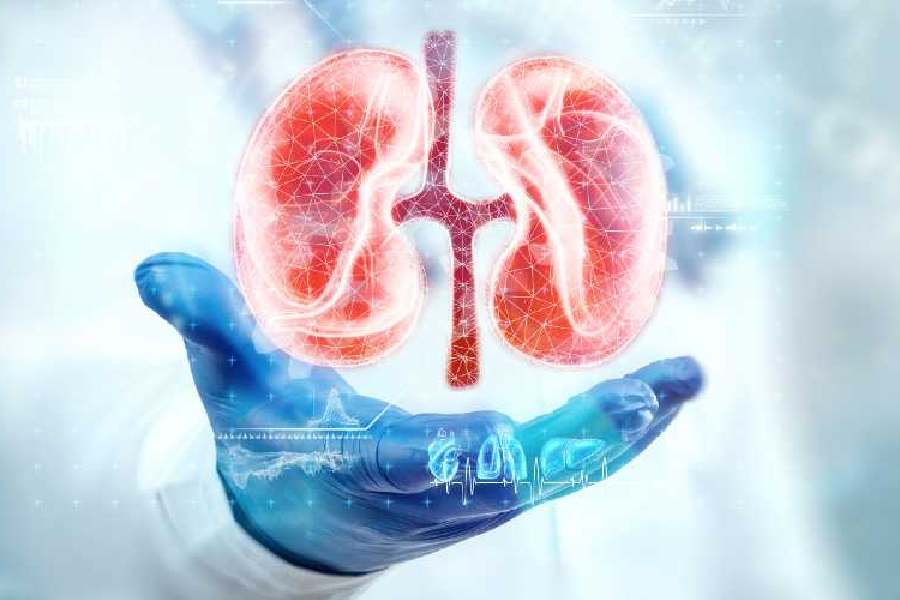An Indian research consortium has set out to validate a “risk equation” to predict kidney failure and enable high levels of personalised treatment amid new treatment guidelines recommending certain kidney-protective drugs for more patients.
The validation exercise is expected to help refine doctors’ ability to identify patients who are at risk of progressive kidney disease and clinical laboratories may use the equation, once validated, to generate quantified risk scores for kidney failure.
The equation uses biochemical tests involving blood and urine samples to generate risk scores.
“The quantified predictions could say a patient has a 70 per cent chance, 90 per cent chance, or only 5 per cent chance of developing kidney failure over five years,” said Vivekananda Jha, the executive director of The George Institute for Global Health, New Delhi, who is coordinating the exercise.
“This will also empower patients into having a more meaningful conversation with their doctors,” Jha told The Telegraph.
The standard method to assess kidney function involved values of parameters such as creatinine or urea in blood or albumin in urine, among other tests.
However, a global research collaboration has developed a “kidney failure risk equation” that uses such routine parameters and reliably predicts kidney failure.
Kidney failure is the end stage of chronic kidney disease, a point at which both the kidneys are unable to clear the body’s waste and patients require either dialysis or a kidney transplant.
Studies suggest that over 2,00,000 patients progress into end-stage kidney disease in India annually.
“The equation emerged largely from data from the North American population — we’re now trying to validate it for Indians,” said Jha, a nephrologist who leads the India Chronic Kidney Disease Network, a consortium involving 12 hospitals and medical institutions across India.
The consortium — funded by the Union science ministry’s department of biotechnology — is drawing on data from over 4,000 patients with moderate kidney disease (40 to 60 per cent reduction in kidney function) from eight network hospitals.
Jha said predictive risk reports will allow physicians to tailor treatment for kidney disease to patients’ individualised needs.
Data from studies and
anecdotal information suggest that less than 50 per cent of
patients with kidney disease are getting all medications that could benefit them,
Jha said.
Revised treatment guidelines to be published on Monday in the journal Annals of Internal Medicine, for instance, recommend the use of a class of medicines that lower blood sugar by blocking a protein in the kidneys for patients with chronic kidney disease with or without diabetes.











